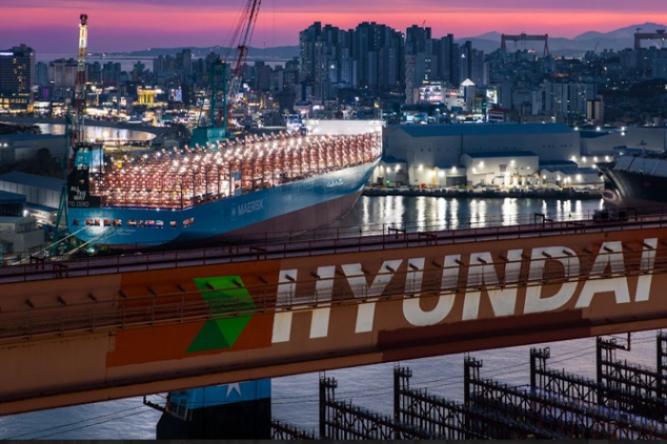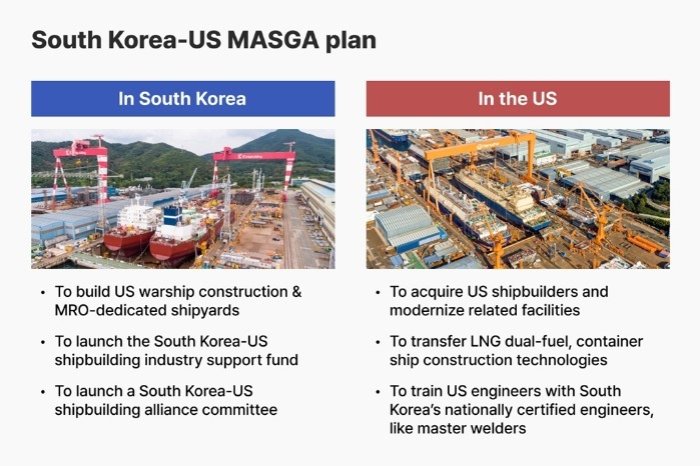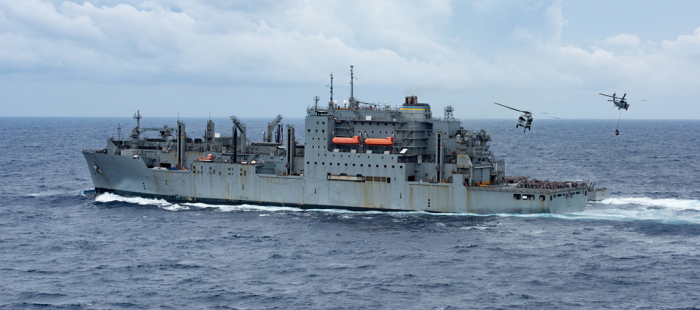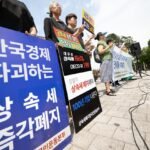
HD Hyundai Co., the parent of the world’s largest shipbuilder, HD Hyundai Heavy Industries Co., will build a quantum cryptography communication network linking shipbuilders and defense contractors in South Korea, in a move expected to reinforce Seoul-Washington efforts to rebuild the US shipbuilding industry.
According to the shipbuilding industry on Sunday, the Korean shipbuilding group will join a Korean government-led project to establish a nationwide quantum-secure network infrastructure, which is projected to cost about 3 trillion won ($2.2 billion) through 2035.
The initiative, which will be announced later by Korea’s Ministry of Science and ICT, aims to foster more than 1,000 quantum technology companies in the country, install quantum cryptography communication networks in state agencies and build the related infrastructure for key industries such as the financial, shipbuilding and defense industries.
A quantum cryptography communication network is a system that uses the laws of quantum physics to securely share encryption keys, making eavesdropping or hacking virtually impossible.
HD Hyundai plans to apply the highly secure network to its commercial vessel and battleship construction, as well as maintenance, repair and overhaul services to prevent leaks of confidential information.
The company expects the quantum security system to accelerate the Korean government’s $150 billion shipbuilding cooperation initiative, dubbed “Make American Shipbuilding Great Again” (MASGA), aimed at revitalizing the US shipbuilding industry.
CENTRAL ROLE IN THE QUANTUM-SECURE NETWORK

As the first shipbuilder to apply a quantum-based communication network, HD Hyundai will serve as a hub of the nationwide quantum cryptography communication network, which will eventually link 1,200 companies in the country’s shipbuilding and defense sectors, largely based in Ulsan and Changwon, major southern Korean industrial cities.
The network will connect not only HD Hyundai affiliates, including HD Hyundai Heavy and HD Hyundai Marine Solution Co., as well as other shipbuilders such as K Shipbuilding Co., a mid-tier Korean shipbuilder, floated as a strong candidate to operate a US ship-dedicated dockyard.
HD Hyundai was tapped as a key partner of the Korean government’s quantum project after successfully piloting a quantum cryptography communication network with KT Corp. and a state agency in 2021.
ADDRESSING US SECURITY CONCERNS
The Korean shipbuilding behemoth expects the advanced quantum secure network will accelerate Seoul’s MASGA initiative, as the technology promises airtight protection against leaks of classified information, a critical requirement for building and servicing US warships.
It is expected to eliminate the risk of eavesdropping or hacking by North Korea or China during real-time exchanges between a Korean shipbuilder and the US military on sensitive matters such as ship designs, parts specifications and maintenance schedules.

“Potential information leakage is among the US government’s top concerns over the MASGA project,” said an official in the shipbuilding industry.
“Cooperation with the US will likely gain further traction once HD Hyundai Group establishes comprehensive quantum cryptography networks across its affiliates and subcontractors to ensure advanced security.”
Earlier this month, HD Hyundai Heavy Industries won its first-ever MRO contract for a US Navy vessel – the USNS Alan Shepard, a 41,000-ton Lewis and Clark-class dry cargo and ammunition ship assigned to the US Navy’s Seventh Fleet.
The deal followed a breakthrough in Seoul-Washington bilateral trade talks, including an agreement to expand shipbuilding cooperation and jointly tackle tariffs on maritime goods.
A month earlier, rival Hanwha Ocean Co. secured a similar MRO deal for the USNS Charles Drew, part of the US Navy’s Western Pacific operations.
Defense companies are also expected to actively adopt the quantum-secure network to enhance the protection of sensitive data.
Analysts expect quantum security to become a cornerstone of the global defense and shipbuilding industries.
The global market for quantum cryptography communications is forecast to expand nearly fivefold to $5.4 billion in 2030 from $1.1 billion in 2024, according to MarketsandMarkets.
By Jin-Won Kim
jin1@hankyung.com
Sookyung Seo edited this article.















